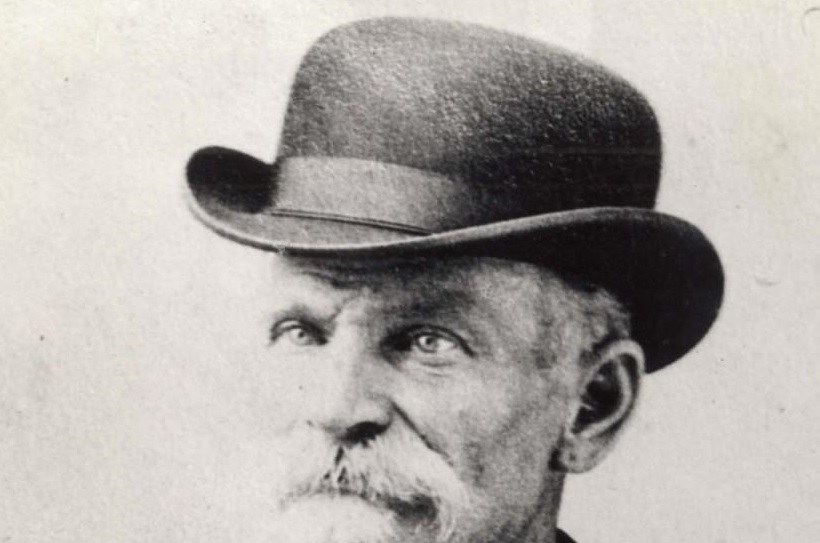Charles Earl Boles, also known as Black Bart, was an English born outlaw known for the poetic messages he left behind after two of his robberies. Often called Charley by his friends, he was also known as Charles Bolton, C.E. Bolton and Black Bart the Poet. Take a look below for 27 more interesting and weird facts about Black Bart.
1. Considered a gentleman bandit with a reputation for style and sophistication, he was one of the most notorious stagecoach robbers to operate in and around Northern California and southern Oregon during the 1870s and 1880s.
2. Boles was born in Norfolk, England, to John and Maria boles.
3. He was the third of ten children, having six brothers and three sisters.
4. When he was two years old, his parents immigrated to Jefferson County, New York, where his father purchased a farm four miles north of Plessis Village in the direction of Alexandria Bay.
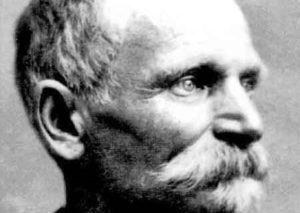
5. In late 1849, Boles and his brothers David and James joined in the California Gold Rush, prospecting in the North Fork of the American River near Sacramento.
6. Boles and his brothers traveled home in 1852, but Boles later returned with his brothers David and Robert.
7. Boles remained in California for another two years before he gave up again.
8. In 1854, Boles married Mary Elizabeth Johnson. By 1860, they were living with their four children in Decatur, Illinois.
9. On August 13, 1862, Boles enlisted as a private in Company B, 116th Illinois Regiment. He was a good soldier and became a First Sergeant within a year.
10. Boles was seriously wounded at the Battle of Vicksburg, and took part in Sherman’s March to the Sea. He received brevet commissions as both second lieutenant and first lieutenant, and on June 7, 1865, was discharged with his regiment in Washington, D.C.
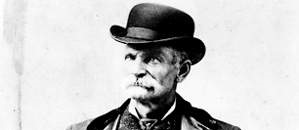
11. In 1867, Boles went prospecting for gold in Idaho and Montana. In a surviving letter to his wife from August, 1871, he told her of a bad encounter with some Wells, Fargo and Company agents and vowed to exact revenge.
12. After 1867, his wife never heard from him again, and in time, she presumed he was dead.
13. Boles adopted the nickname “Black Bart” and proceeded to rob Wells Fargo stagecoaches at least 28 times across northern California between 1875 and 1883, including a number of times along the historic Siskiyou Trail between California and Oregon.
14. He only left two poems, at the fourth and fifth robbery sites, but this came to be considered his signature and ensured his fame.
15. Ironically, Boles was afraid of horses and made all of his robberies on foot. Together with his poems, this earned him notoriety.
16. He supposedly never once fired a weapon during his years as an outlaw.
17. Boles was invariably polite and used no foul language, despite its appearance in his poems.
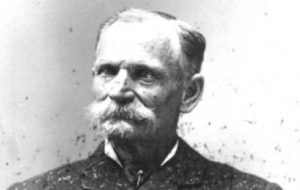
18. He dressed in a long linen duster coat and bowler hat, using a flour sack with holes cut for his eyes as a mask. He brandished a shotgun, but never used it. These features became his trademarks.
19. On July 26, 1875, Boles robbed his first stagecoach in Calaveras County, California, on the road between Copperopolis and Milton. He spoke with a deep and resonant tone as he politely ordered stage driver John Shine to “throw down the box.”
20. His last holdup took place on November 3, 1883, at the site of his first robbery on Funk Hill, southeast of the present town of Copperopolis.
21. When Boles was wounded and forced to flee from his last robbery, he left behind several personal items. These included his eyeglasses, some food, and a handkerchief with a laundry mark F.X.O.7.
22. The detectives learned that Boles called himself a mining engineer and made frequent “business trips” that coincided with the Wells Fargo robberies.
23. After initially denying that he was Black Bart, Boles eventually admitted that he had robbed several Wells Fargo stages, though he confessed only to rimes committed before 1879. Boles, apparently, believed that the statue of limitations had expired on those robberies.
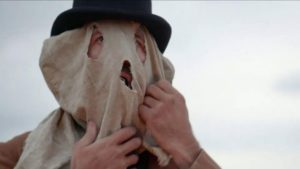
24. When booked, he gave his name as T.Z. Spalding, but police found a Bible, a gift from his wife, inscribed with his real name.
25. His police report stated that Boles was, “a person of great endurance. Exhibited genuine wit under most trying circumstances, and was extremely proper and polite in behavior. Eschews profanity.”
26. Wells Fargo only pressed charges on the final robbery.
27. Boles was convicted and sentenced to six years in San Quentin Prison, but he was released after four years for good behavior, in January, 1888. His health had clearly deteriorated due to his time in prison; he had visibly aged, his eyesight was failing, and he had gone deaf in one ear. Reporters swarmed around him when he was released and asked if he was going to rob any more stagecoaches, he replied, “No gentlemen, I’m through with crime.”

